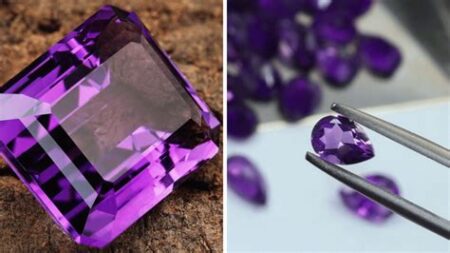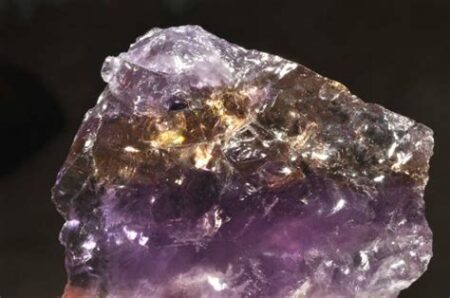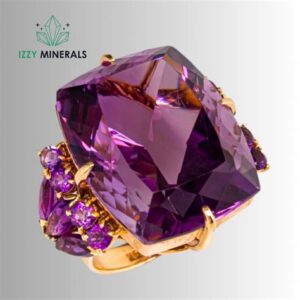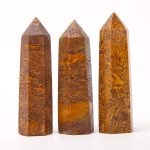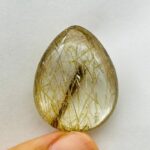The Mystical Power of Emeralds
Emeralds, the verdant jewels adorning nature’s crown, possess an allure that has captivated hearts for centuries. These mesmerizing gems, composed primarily of the mineral beryl, showcase a vibrant green hue that whispers secrets of love, harmony, and fortune.

The Gemology of Emeralds
Emeralds owe their captivating color to traces of chromium and vanadium within their crystalline structure. These impurities dance harmoniously, absorbing red light while allowing green wavelengths to illuminate their depths. The intensity of the green coloration varies depending on the concentration of these elements, ranging from pale shades to the coveted deep emerald hue.
The clarity of emeralds is also a defining characteristic. Flawless emeralds, devoid of visible inclusions, are extremely rare. Most emeralds exhibit jardin inclusions, tiny mineral deposits that resemble miniature gardens within the gemstone. These imperfections, far from detracting from the emerald’s beauty, add character and enhance its uniqueness.
The History and Lore of Emeralds
Emeralds have a rich history, entwined with legends and folklore. Ancient Egyptians revered emeralds as a symbol of rebirth and eternal life. Cleopatra, the legendary queen of Egypt, was known for her extravagant emerald collection, believing the gems possessed rejuvenating powers.
In the Middle Ages, emeralds were associated with wisdom and tranquility. Knights adorned their armor with emeralds, hoping to harness the stone’s purported ability to protect them in battle. Alchemists used emeralds in their elixirs, convinced of their capacity to prolong life and bring prosperity.
The Symbolism and Meaning of Emeralds
Emeralds symbolize growth, renewal, and fertility. Associated with the planet Venus, they represent love, beauty, and harmony. The vibrant green hue evokes the abundance of nature, reminding us of the transformative power of the earth’s embrace.
Emerald Mining and Production
Emeralds are found in various locations worldwide, but the most notable sources are Brazil, Colombia, and Zambia. Mining involves meticulous exploration to locate emerald-bearing veins within rocky formations. The extraction process requires specialized techniques to preserve the fragile gems’ integrity.
Once extracted, emeralds undergo a series of treatments to enhance their beauty and durability. These treatments may include cleaning, oiling, and heat treatment.
The Value and Investment Potential of Emeralds
Emeralds are highly valued gemstones, with the finest specimens fetching exorbitant prices. Factors influencing their value include color, clarity, carat weight, and provenance. Investment-grade emeralds are those that exhibit exceptional quality and rarity.
The emerald market has experienced steady growth in recent decades. According to the Gemological Institute of America (GIA), the average price of a 1-carat emerald increased by over 50% between 2010 and 2022.
Applications of Emeralds
Beyond their captivating beauty, emeralds have found practical applications in various fields.
Jewelry and Adornment
Emeralds adorn necklaces, earrings, bracelets, and rings, enhancing the allure of these wearable art pieces. Their verdant hue adds an air of sophistication and elegance to any ensemble.
Therapeutic and Spiritual Uses
Emeralds are believed to possess metaphysical properties, influencing the mind, body, and spirit. Practitioners of crystal healing utilize emeralds for their purported ability to promote emotional balance, reduce stress, and foster creativity.
Gemstone Entrepreneurship
The allure of emeralds has inspired entrepreneurs to explore innovative applications for these precious gems.
Crystalline Cinema
Leveraging the optical properties of emeralds, a novel technology has emerged: crystalline cinema. This technique uses emerald crystals as a screen, projecting images with exceptional clarity and depth perception.
Sonic Emmorralds
Harnessing the piezoelectric properties of emeralds, researchers have developed sonic emorralds. These devices transform sound energy into electrical signals, enabling the creation of ultra-sensitive microphones and biomedical sensors.
Tables
| Parameter | Emerald Attributes |
|---|---|
| Chemical Composition | Beryllium Aluminum Silicate (Be3Al2(SiO3)6) |
| Crystal Structure | Hexagonal |
| Mohs Hardness | 7.5 – 8 |
| Refractive Index | 1.564 – 1.583 |
| Country | Emerald Production (2022) |
|---|---|
| Brazil | 50% |
| Colombia | 30% |
| Zambia | 15% |
| Other countries | 5% |
| Emerald Color Grade | Description |
|---|---|
| Fine | Vivid green with minimal inclusions |
| Commercial | Moderate green with visible inclusions |
| Utility | Pale green with significant inclusions |
| Emerald Clarity Grade | Description |
|---|---|
| Flawless | No visible inclusions under 10x magnification |
| Internally Flawless | No visible inclusions under 10x magnification within the stone’s interior |
| Slightly Included | Small, isolated inclusions visible under 10x magnification |
| Included | Multiple and larger inclusions visible under 10x magnification |
FAQs
1. What is the difference between an emerald and a lab-created emerald?
Natural emeralds are formed through geological processes over millions of years, while lab-created emeralds are synthesized in controlled laboratory environments.
2. How can I tell if an emerald is real?
Authentic emeralds typically exhibit inclusions, while lab-created emeralds may be flawless or contain artificial inclusions. A gemologist can provide a professional appraisal to determine the authenticity of an emerald.
3. How should I clean my emerald jewelry?
Use a soft cloth dampened with warm, soapy water. Avoid using harsh chemicals or ultrasonic cleaners.
4. What are the benefits of wearing emerald jewelry?
Wearing emeralds is believed to promote emotional balance, reduce stress, and foster creativity. However, these beliefs are subjective and not scientifically proven.
5. How can I invest in emeralds?
Investing in emeralds requires knowledge and expertise. Consider consulting with a gemologist or appraiser before making a significant purchase.
6. What is the best way to store emeralds?
Store emeralds in a cool, dark place away from direct sunlight. Wrap them individually in soft cloths to prevent scratching.
7. Are emeralds a good investment?
Emeralds can be a lucrative investment, but they are subject to market fluctuations. Investment-grade emeralds with exceptional quality and rarity typically appreciate in value over time.
8. How can I tell the difference between a natural emerald and a treated emerald?
Natural emeralds may exhibit jardin inclusions, while treated emeralds may appear overly transparent or lack characteristic inclusions. A gemologist can determine the treatment history of an emerald through specialized techniques.

